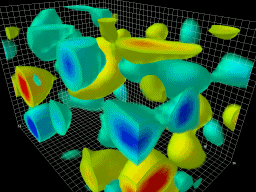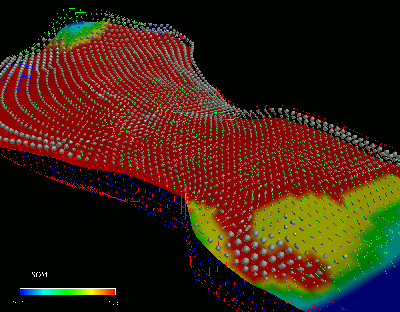Have I previously discussed my enjoyment of the word flux? I don’t think I have.
In fact, I like the word enough that I’ve just officially adopted it for the next year at Adopt-A-Word.
As the word’s new guardian, I will, of course, be traveling the web to ensure the word is not misused, or under-used.
(This is a charity thing, in support of I Can, so it’s in a good cause. The good reasons for doing this aside, I intend to totally get into my adoption of this word. What word would you pick? Why?)
So why do I enjoy the word so much?
Partly, I have to admit, it’s down to the word being fun to say. Not as much fun as say “Caracas, Venezuela”, but pretty fun for a four letter word that you can actually use in any group’s polite conversation. Mostly though, it’s down to what the word means, and the set of concepts that it connects to.
So let’s start with what the dictionary says.
Main Entry:
1flux
Pronunciation: \ˈfləks\
Function: noun
Etymology: Middle English, from Anglo-French & Medieval Latin; Anglo-French, from Medieval Latin fluxus, from Latin, flow, from fluere to flow — more at fluid
Date: 14th century
1: a flowing of fluid from the body: as a : diarrhea b : dysentery
2: a continuous moving on or passing by (as of a stream)
3: a continued flow : flood
4 a: influx b: change, fluctuation <in a state of flux>
5: a substance used to promote fusion (as of metals or minerals); especially : one (as rosin) applied to surfaces to be joined by soldering, brazing, or welding to clean and free them from oxide and promote their union
6: the rate of transfer of fluid, particles, or energy across a given surface
Main Entry: 2flux
Function: verb
Date: 15th century
transitive verb
1: to cause to become fluid
2: to treat with a flux
intransitive verb
: to become fluid : fuse
Look, it’s a noun and a verb, and it has so many meanings!
I was somewhat startled by that first definition–I don’t think that’s a common one in my experience, although some of the other dictionaries list it as medical jargon, which might explain it.
Definitions 2 and 4 are the ones that really engage me on a philosophical level. The notion of a “continuous moving on” ties in very nicely with some of my ideas around process philosophy–especially when you combine it with the obvious physical metaphor of the flow of a stream, or something similar, where there’s not just a sense of continual motion, but a sense of continual motion in a direction. And the fact that it’s continuous, of course, means that it will never reach the sea–which is fine with me, since I happen think that’s a classy way to fail. Also, of course, the tight connection of continual motion and the visual of the stream also calls to mind all the various thoughts and ideas that are packaged up in the whole Heraclites’ River concept
And that’s ignoring the poetic potential of the possible “passing by” connotation–of everything from not being able to stop and smell the roses (“continuous” motion, remember) through to being the kind of ever-so-weary river that doesn’t get to eventually wind somewhere safe to sea.
And then there’s definition 4: flux not only as a process of motion and flow, but more generally as a process of change and fluctuation; the opposite of things being static–but also with a connotation of pattern (or in some cases even purpose) or operation within a set of rules/limits that sets it as somehow opposed to an unfettered chaos. From right out of my teen years I can hear an astoundingly high tenor reach me with these words: “He knows changes aren’t permanent / But change is.” And that’s what flux really means, isn’t it: everything changes except for the fact that everything changes?
So that’s my secret philosopher’s heart, and my touch of the poet deal with, and surely that’s enough to explain things already… but we’re not done yet, because flux also has appeals to my geekish engineering side as well.
Read what’s covered under the Wikipedia entry, where in you will find terms like “surface bombardment rate”, “the magnitude and spectral class of a star”, “diffusion coefficient”, “flux density”, “Maxwell’s equations”, “Poynting vector”, and lots of other similarly cool sounding things that map to cool things in the real world.
Hell, the units that some kinds of flux are measured in are even names of geek heroes like Tesla and Gauss.
Also, the various scientific and mathematical definitions of flux tend to lend themselves to some pretty cool visualizations, like say this one:

(That’s from some Australian academic research into Quantum Chromodynamics–another of those uber-geek-cool related terms.)
or like this:
(That’s from some Lawrence Berkeley Labs research into flux visualization.)
And, of course, there’s also the question of pop cultural resonance of the scientific definitions of flux. For people of a certain age, hearing the word flux will call forth this picture:

That should be enough explanation of some of the whys in my fascination with the word. And that’s without addressing things like “influx”, welding, and the underlying meaning of making something fluid. But this post is long enough already.
Before I close out though, I would be remiss if I didn’t give a hat tip to the fellow who brought the Adopt-A-Word thing to my attention:





1 comment for “A continuous moving on”